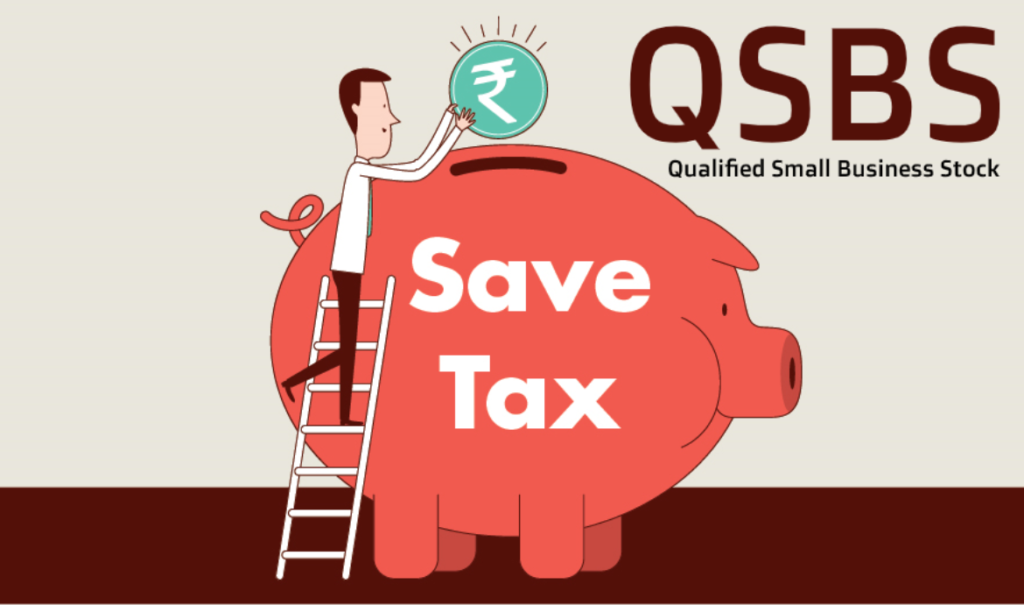Save Up To 100% Tax With QSBS (Qualified Small Business Stock)

In December 2015, the Protecting Americans from Tax Hikes Act of 2015 (“PATH Act”) was passed by Congress and signed
In December 2015, the Protecting Americans from Tax Hikes Act of 2015 (“PATH Act”) was passed by Congress and signed into law by President Barack Obama. The PATH Act made several tax breaks permanent, including the Small Business Stock Gains Exclusion (Section 1202).
Section 1202 Stock Capital Gain Exclusion
The Small Business Stock Gains Exclusion (Section 1202) is significant for the exclusion of 100 percent of the gain on the sale or exchange of qualified small business stock (QSBS) acquired after September 27, 2010 and held for more than five years. In addition, the amount of gain exclusion is limited to a maximum of the greater of $10 million or 10 times the cost basis of the stock.
Depending on the acquisition date of QSBS, non-corporate investors may also exclude 50/75/100 percent of gain they realize on the disposition of QSBS issued after August 10, 1993 and held more than five years.
If acquired 8/11/1993 – 2/17/2009 – 50% exclusion
If acquired 2/18/2009 – 9/27/2010 – 75% exclusion
If acquired after 9/27/2010 – 100% exclusion
Excluded gain from QSBS acquired after September 27, 2010 will not be treated as a preference item for AMT purposes, so the benefits extend equally to AMT taxpayers. For QSBS that qualifies for a 50 or 75 percent capital gain exclusion, 7% of the gain is subject to AMT.
For gain on its stock to qualify for the exclusion, a corporation must be a C corporation when the stock is issued and thereafter, and the corporation can’t be:
- A regulated investment company
- A real estate investment trust
- A real estate mortgage investment conduit
- A financial asset securitization investment trust
- A cooperative
- A corporation electing the Puerto Rico and possessions tax credit
Qualifications for Exemption
Stock must be issued to the taxpayer directly from the Corporation for services rendered other than underwriting the Corporation’s stocks or purchased directly from the Corporation. Stock can also be acquired by gift or bequest. The stock will qualify for exemption as long as it qualified in the hands of the transferor.
Stock issued to a taxpayer cannot qualify for the exclusion if the issuing corporation purchases, directly or indirectly, any of its own stock from the taxpayer or related persons within a 4-year period beginning 2 years before and ending 2 years after the stock is issued. However, a “safe harbor” de minimis amount can be redeemed. The aggregate amount paid in such redemptions cannot exceed $10,000 or more than 2% of the stock held by the taxpayer and related persons.
The exemption also cannot be claimed if the issuing corporation engages in a “significant redemption”. A significant redemption occurs when the corporation redeems stock with an aggregate value exceeding 5% of the total aggregate value of the corporation’s stock, within a 2-year period beginning 1 year before and ending 1 year after the issuance of the stock. A de minimis amount can be claimed if the aggregate amount paid for all stock redeemed within the same period does not exceed $10,000 or 2% of all outstanding stock.
Per-issuer Limitation
Eligible gain from a single issuer in any tax year may not exceed the greater of:
- $10 million reduced by any gain from the same issuer that was excluded in prior years.
- 10 times the adjusted basis of all qualified stock from the same issuer that the taxpayer disposed of during the tax year. This limitation can severely restrict the tax benefit of this provision in the event of a substantial windfall.
The $10 million limitation is applied on a shareholder. Any property contributed to the issuing corporation is considered at its fair market value as of the contribution date when calculating the gain on sale for the purpose of the limitation.
Original issue requirement (Section 1202(c))
Small business stock must have been acquired by the taxpayer (other than a corporation) at its original issue after August 10, 1993. The stock must have been acquired for money, property other than stock, or services other than underwriting. The exclusion is not limited to the corporation’s initial stock offering, but also applies to any subsequent issuance.
Transfers of QSBS for other stock – i.e. in a Section 351 incorporation or 368 reorganization – are treated as if all the stock involved is QSBS. If QSBS is transferred by gift, at death, or from a partnership to a partner, the transferee inherits the holding period of the stock.
Qualified Small Business Requirement (Section 1202(d))
For the stock to qualify, the corporation must use at least 80% of its assets in the active conduct of a qualified trade or business. This stipulation applies to substantially all of the taxpayer’s holding period. The active business requirement is waived for specialized small business investment companies (SSBIC). An SSBIC is any corporation licensed by the SBA under Section 301(d) of the Small Business Investment Act.
Qualified trade or businesses does not include professional service organizations (law, accounting, architecture, etc.), banking, mining, or hotel or restaurant management.
Gross Assets Test
The aggregate gross assets of a qualified small business corporation cannot exceed $50 million before and immediately after the issue date. In addition, parent-subsidiary groups are treated as a single taxpayer, and the value of contributed property is the fair market value as of the contribution date.
Tax Treatment for Pass-Thru QSBS
Noncorporate partners of a partnership can exclude 50/75/100 percent of the gain on sale of QSBS if the stock qualifies as QSBS, has been held for at least five years, and the noncorporate partner held its interest in the partnership on the date which such pass-through entity acquired stock and held it until disposition.
The amount of gain eligible for Section 1202 treatment cannot exceed the amount of gain that would be allocated to the partner based on the percentage interest in the partnership at the time QSBS was acquired.
California Taxation
California does not allow any QSBS gain exclusion for stock sales made on or after January 1, 2013.
For QSBS sales made before January 1, 2013, California allows exclusion of 50 percent of gain from disposition of QSBS, but requires:
- At least 80 percent of the corporation’s payroll be attributable to employees located within California during substantially all of the holding period.
- At least 80 percent of the corporation’s assets used in the conduct of trade or business within California during substantially all of the holding period.
At GROCO, we can assist you further with this and other tax-related matters. Please contact us at Info@GROCO.com or at 1-877-CPA-2006
What Is Section 1202 Stock?
The Protecting Americans From Tax Hikes Act of 2015 (PATH Act), which was signed into law late last year, finally made several temporary tax breaks permanent. Among the tax breaks included is the Small Business Stock Gains Exclusion, known as Section 1202. So what is the Small Business Stock Gain Exclusion? Section 1202 is designed…
Some of the Most Amazing Tax Deductions Ever
At GROCO, we have been doing this for more than 50 years. That means we’ve heard just about every crazy tax story you can imagine. With tax season now officially in full swing we thought we would share some of the craziest tax deduction stories we’ve ever heard; and they’re all true. A gas station…
Is The U.S. Really a Low-Tax Country?
Many U.S. taxpayers feel that our country’s taxes are too high, no matter which economic class you’re in. Likewise, regardless of which side of the political world you rest, most people would agree that the U.S. tax system needs some serious upgrading, and not just some fine-tuning. However, it appears that compared to many of…
Will Your Tax Return Draw the IRS’s Attention?
No one wants to experience a tax audit. The good news is that most people never will have to go through that experience. The IRS simply doesn’t have the time and resources to audit every tax return. In fact, the IRS only audits about 1 percent of all returns. That means most people don’t have…




